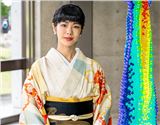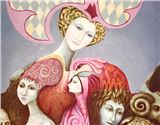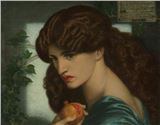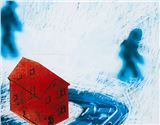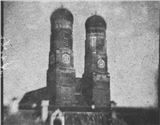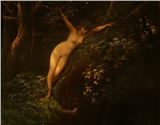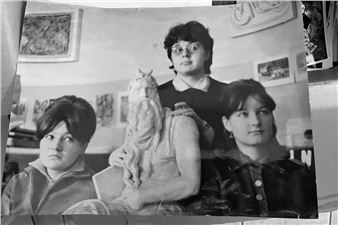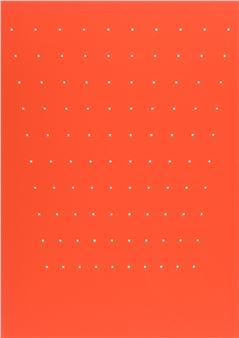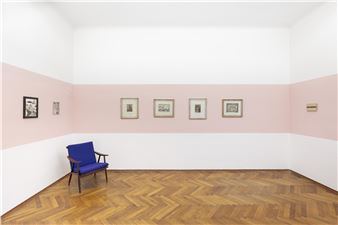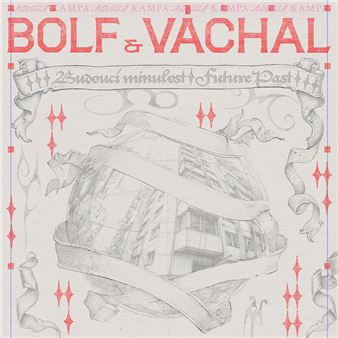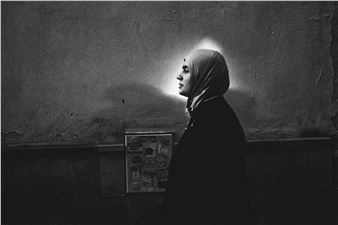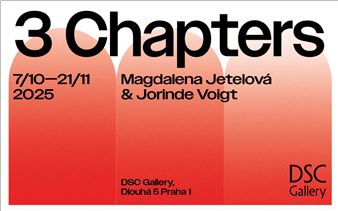KriЕЎtof Kintera: Nervous Trees
This autumn, Galerie Rudolfinum will open the 100th exhibition since its founding in 1994. To mark this anniversary, the gallery is hosting a large-scale exhibition project of Krištof Kintera which presents a summary of the last five years of the author’s oeuvre, and features some twenty sculptures, installations and interactive objects.
The exhibition title Nervous Trees references the eponymous objects which will nervously move in the main exhibition hall; in another, the visitor will have to make his way between pedestals made of polystyrene, the cosily familiar thermal insulation material, while its fragments whirling around in the gallery evoke a rather unpleasant snow storm. An important part of the exhibition includes the so-called laboratory, which takes the visitor right into the birthing process of Kintera’s ongoing installation Postnaturalia, about a hundred square metres of artificial landscape made of electronic devices – poetic and, at the same time, drastic. Samples of plastic flowers, files with herbariums and extensive video footage of creation of individual objects act as the landscape elements.
The exhibition accentuates the collaborative process – seemingly trivial but essential for the functioning and development of any more complex system. At the same time, it references fragility of the relationship between the actors within the system; this is what makes and breaks any such relationship. Kintera likes to say that he greatly enjoys the time in his studio on weekends – when he is there all by himself, free to pursue a different kind of concentration.
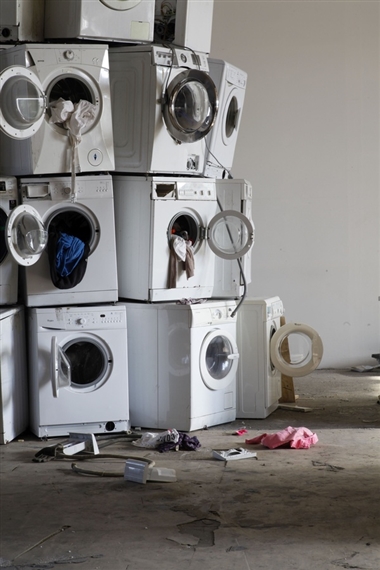
Recommended for you
This autumn, Galerie Rudolfinum will open the 100th exhibition since its founding in 1994. To mark this anniversary, the gallery is hosting a large-scale exhibition project of Krištof Kintera which presents a summary of the last five years of the author’s oeuvre, and features some twenty sculptures, installations and interactive objects.
The exhibition title Nervous Trees references the eponymous objects which will nervously move in the main exhibition hall; in another, the visitor will have to make his way between pedestals made of polystyrene, the cosily familiar thermal insulation material, while its fragments whirling around in the gallery evoke a rather unpleasant snow storm. An important part of the exhibition includes the so-called laboratory, which takes the visitor right into the birthing process of Kintera’s ongoing installation Postnaturalia, about a hundred square metres of artificial landscape made of electronic devices – poetic and, at the same time, drastic. Samples of plastic flowers, files with herbariums and extensive video footage of creation of individual objects act as the landscape elements.
The exhibition accentuates the collaborative process – seemingly trivial but essential for the functioning and development of any more complex system. At the same time, it references fragility of the relationship between the actors within the system; this is what makes and breaks any such relationship. Kintera likes to say that he greatly enjoys the time in his studio on weekends – when he is there all by himself, free to pursue a different kind of concentration.
Artists on show
Contact details


 ARTISTS
ARTISTS
